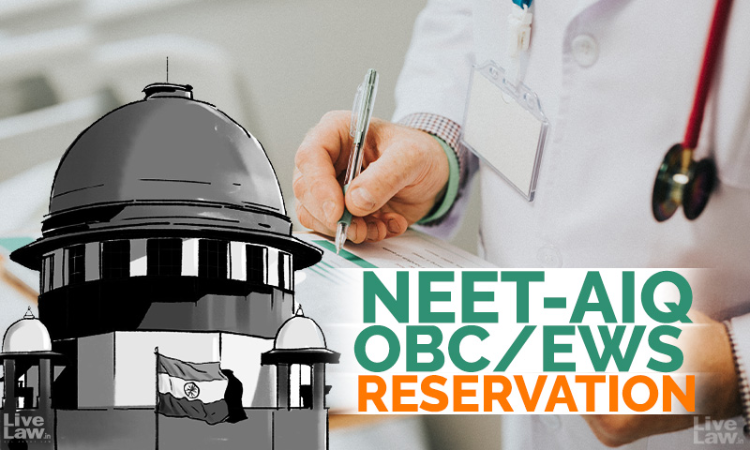Rs 8 Lakh Limit For EWS Making 'Unequals Equals' : Supreme Court To Centre In NEET-AIQ Case
Shruti Kakkar
21 Oct 2021 12:03 PM IST

Next Story
21 Oct 2021 12:03 PM IST
The Central Government had to face tough questions from the Supreme Court on Thursday over its decision to adopt the criteria of annual income of Rupees 8 lakhs for determining the eligibility for Economic Weaker Sections(EWS) reservation in the NEET-All India Quota.A bench comprising Justices DY Chandrachud, Justice Vikram Nath and Justice BV Nagarathna expressed unhappiness at the Centre...
